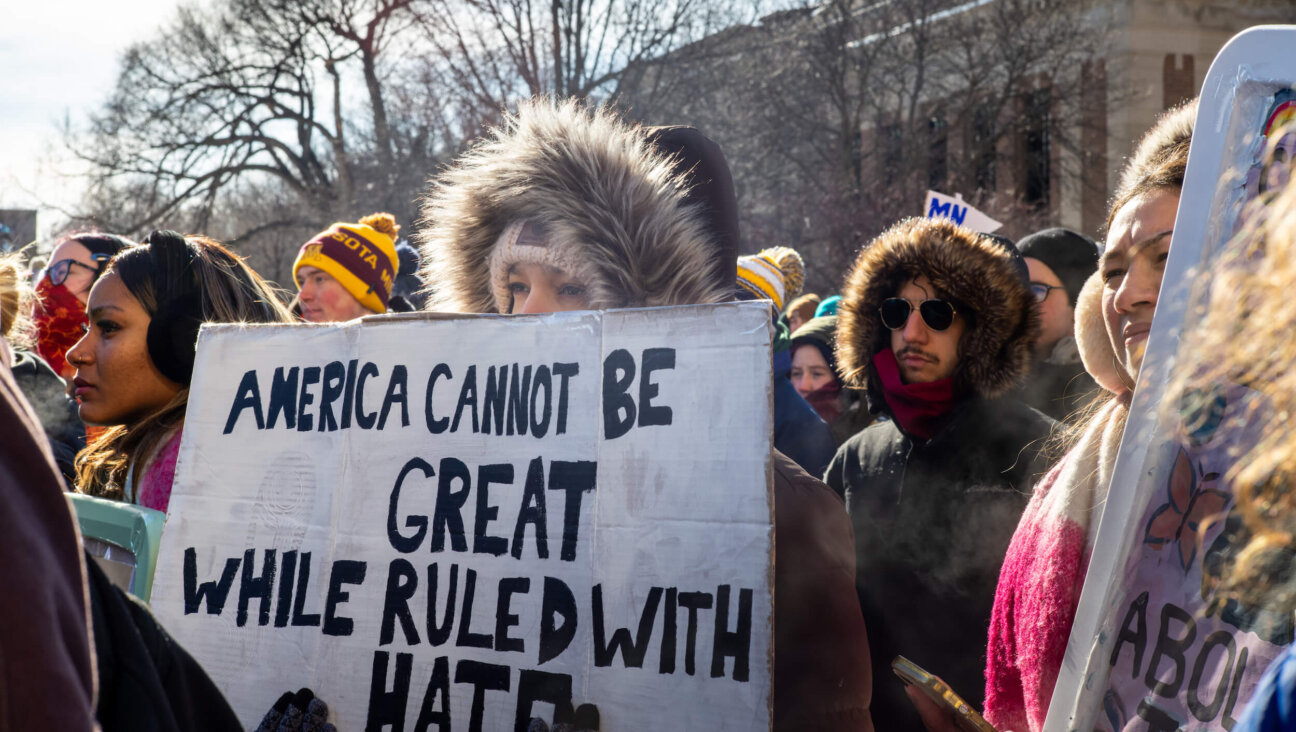Throw Full Weight of Washington Behind Middle East Peace Process
as a cadet at west point, i learned that a state cannot survive for long unless it alone controls the use of force. the story that most vividly illustrates this point started back in 1948. it is the story of the state of israel.
In June of that year, a ship named the Altalena dropped anchor off the coast of Tel Aviv. The vessel was loaded with weapons, ammunition and volunteers for a paramilitary movement. David Ben-Gurion, the head of Israel’s new government, knew that the just-declared cease-fire in the War for Independence would be wrecked if the Altalena was allowed to off-load. They had no choice but to order their defense forces to sink the ship. It fell to a young colonel to carry out those orders.
That officer was Yitzhak Rabin.
By scuttling the Altalena, Rabin took a giant step forward toward statehood for the Jewish people. In 1993, he took another step forward by signing the Oslo accords. Ever since Rabin shook hands with Yasser Arafat, the world has been waiting for the Palestinian authorities to take a similar step by disarming their own militants. That moment has yet to come. It will take bold leadership from the Palestinians and Israelis, and a staunch commitment from the United States. Unfortunately, the Palestinians have yet to find their Rabin. But I still believe that Israel will one day thrive side by side with a Palestinian state.
Until that day, the Israeli government has a duty to defend its people from the constant onslaught of bombers who attack innocent civilians on buses, in restaurants and on their way from prayer. As a retired general, I firmly believe that this is the least that any society expects of its leadership. We should never question Israel’s right to self-defense. Indeed, we must continue to provide Israel with the resources — both financial and diplomatic — to aid its search for peace.
Currently, Israel is building a security fence — not because it wants to, but because terrorism has forced its hand. The fence is not a barrier to the peace process. No country can negotiate if the other side believes it has no alternatives. The fence will help contain the terrorist onslaught. It will warn other parties in the Middle East that they need to start negotiating — now. But it is not a sustainable substitute for peace.
A strong, democratic State of Israel is the key to the future of the Middle East. For 50 years, Israelis stood side by side with Americans in fighting against communism and terrorism. We forged a unique relationship based on common interests and a common dedication to the principles of democracy. In the aftermath of September 11, and with Israelis facing a fresh campaign of suicide bombings, this relationship is more firmly founded then ever before.
Every president since Harry Truman has kept America’s commitment to the security of Israel. At Camp David, President Clinton helped the parties come close to peace, but Arafat balked and chose violence. Upon assuming office, the Bush administration decided to disengage. That strategy didn’t work. So, under pressure from British Prime Minister Tony Blair and other allies, the administration reversed course and sent powerful emissaries to the region. Sadly, this positive step was too little too late.
Leading a real peace process is a responsibility that the United States cannot walk away from — and it is a responsibility that starts in the White House. Negotiations must proceed along a multifaceted track. The Israeli government should not be forced to make further territorial concessions until the Palestinian Authority acts decisively and verifiably to dismantle terrorism. But to get negotiations back on track, the next administration must make peace for Israel one of its top priorities.
Other states must do their part, too. Currently, Palestinian militants are aided and Palestinian civilians are used by regional powers who stoke the violence to vent their own domestic tensions. That has to stop, and we have to stop it. Road maps to peace cannot be successful when others impose roadblocks.
We must use every available tool to ensure that the governments of Syria, Saudi Arabia, Egypt, Lebanon and others are facilitating rather than obstructing the peace process. We cannot wage an effective war against terrorism while permitting Iran to subsidize suicide bombers. The world cannot unite against Al Qaeda while condoning Hamas and Hezbollah.
If peace has a future, we must stop the teaching of hatred to future generations. We must use economic, diplomatic and other tools to ensure that curricula, textbooks and state media do not incite bigotry and violence. The terrorist infrastructure must be dismantled. States that sponsor and fund terrorism must be isolated and condemned.
Ending conflict in the Middle East also entails fostering a real peace between Israel and its 22 Arab neighbors. That means full diplomatic relations, cultural exchanges, trade, tourism and above all, recognition of Israel’s right to exist as an independent Jewish state. This is the kind of permanent peace that must be the end product of the negotiating process.
If you had asked someone 10 years ago whether Muslims and Serbs and Croats could live in peace and relative stability in Bosnia, they would have said, “That’s impossible.” But when I was helping negotiate the Dayton Peace Accords, I learned that when the American government really throws its weight behind a peace process, impossible things become possible.
One day, with real leadership from the United States, I believe this will happen. Like Rabin, I am a soldier who yearns for — and believes in — peace.














